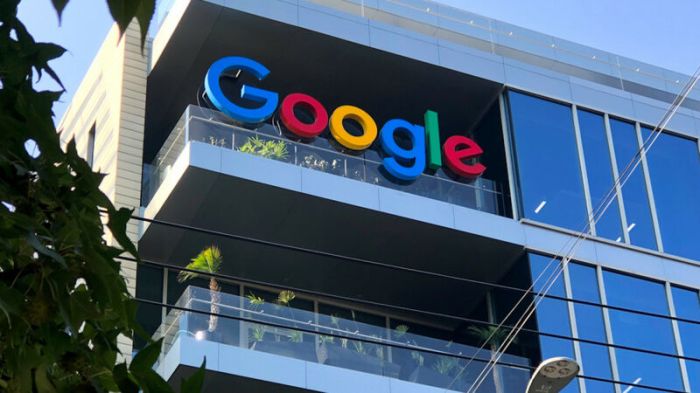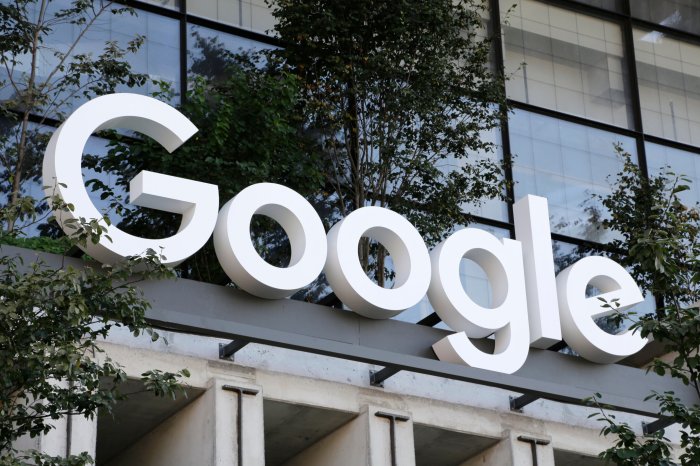Google cuts hundreds of jobs in its voice assistance hardware teams as fitbit founders leave – Google’s voice assistant hardware teams have taken a significant hit, with hundreds of jobs cut as the company shifts its focus. This move comes alongside the departure of Fitbit’s founders, adding another layer of complexity to the situation. The ripple effects of these changes are far-reaching, impacting not only Google’s hardware strategy but also its overall position in the rapidly evolving smart home and wearable technology markets.
This decision reflects a larger trend within Google, highlighting a shift towards software and services as the company seeks to capitalize on its strengths in these areas. The implications of this shift are vast, and the future of Google’s hardware strategy remains uncertain.
Google’s Focus on Software and Services
The recent job cuts in Google’s voice assistance hardware teams and the departure of Fitbit founders suggest a potential shift in Google’s focus towards software and services. This move could have significant implications for Google’s hardware strategy and its future in the consumer electronics market.
Implications for Google’s Hardware Strategy
Google’s decision to cut jobs in its hardware teams and the departure of Fitbit founders indicate a strategic shift towards prioritizing software and services over hardware development. This shift could lead to a reduction in Google’s hardware portfolio, with a focus on key products that align with its software and services strategy.
For example, Google might choose to focus on its Pixel smartphones and Nest smart home devices while potentially scaling back or discontinuing other hardware products like Google Home speakers or Chromecast streaming devices. This strategic realignment would allow Google to concentrate its resources on developing and enhancing its software and services, which are considered core to its business.
Opportunities and Challenges
This shift towards software and services presents both opportunities and challenges for Google.
Opportunities
- Enhanced Software and Services: By focusing on software and services, Google can allocate more resources to developing and improving its existing offerings, such as Android, Google Search, and Google Cloud. This can lead to enhanced user experiences, improved features, and increased market share.
- New Revenue Streams: Google can explore new revenue streams through its software and services, such as subscription-based models for premium features or data analytics services for businesses.
- Strategic Partnerships: By prioritizing software and services, Google can focus on forging strategic partnerships with other companies in the hardware space. This could involve collaborating with manufacturers to develop devices that seamlessly integrate with Google’s software and services.
Challenges
- Increased Competition: The software and services market is highly competitive, with companies like Apple, Amazon, and Microsoft constantly innovating and expanding their offerings. Google will need to stay ahead of the curve to maintain its competitive edge.
- Data Privacy Concerns: As Google relies heavily on user data for its software and services, it faces growing concerns about data privacy and security. It will need to address these concerns effectively to maintain user trust.
- Hardware Integration: While focusing on software and services, Google needs to ensure that its software seamlessly integrates with hardware devices from other manufacturers. This is crucial for maintaining a strong presence in the consumer electronics market.
Competitive Landscape in Voice Assistance and Wearable Technology: Google Cuts Hundreds Of Jobs In Its Voice Assistance Hardware Teams As Fitbit Founders Leave
The voice assistant and wearable technology markets are fiercely competitive, with major players like Google, Amazon, Apple, and Samsung vying for dominance. Each company brings its strengths and weaknesses to the table, shaping the landscape of these evolving technologies. Google’s recent job cuts and the departure of Fitbit founders add another layer of complexity to this already dynamic market.
Google’s Strengths and Weaknesses
Google’s voice assistant, Google Assistant, boasts a strong presence in smartphones and smart home devices. It’s integrated into Android devices and Google’s own hardware products, giving it a wide reach. However, Google has faced criticism for its lack of focus on hardware development, relying heavily on partnerships with other companies.
Google’s wearable technology offerings, including the Fitbit brand, have struggled to gain significant market share compared to Apple’s Watch. While Fitbit has a strong foothold in the fitness tracker market, it has yet to achieve the same level of success with smartwatches.
Amazon’s Strengths and Weaknesses
Amazon’s Alexa has become a dominant force in the smart home market, thanks to its wide range of compatible devices and its focus on user experience. However, Alexa’s presence in smartphones and wearables is limited, relying primarily on third-party partnerships.
Amazon’s wearable technology offerings are primarily focused on fitness trackers and smartwatches, with limited success compared to Apple and Samsung.
Apple’s Strengths and Weaknesses
Apple’s Siri has a strong presence in Apple’s ecosystem, with a focus on seamless integration with iOS devices. However, Siri’s reach outside of Apple’s products is limited, making it less competitive in the broader voice assistant market.
Apple Watch has become the leading smartwatch in the market, thanks to its strong brand, seamless integration with iOS devices, and robust app ecosystem.
Samsung’s Strengths and Weaknesses
Samsung’s Bixby has struggled to gain traction in the voice assistant market, facing stiff competition from Google Assistant and Alexa. Samsung’s focus on its own devices and limited third-party integration has hampered Bixby’s growth.
Samsung’s Galaxy Watch series has gained a strong presence in the smartwatch market, offering a robust feature set and competitive pricing.
Potential Impact of Google’s Job Cuts and Fitbit Founders’ Departure, Google cuts hundreds of jobs in its voice assistance hardware teams as fitbit founders leave
Google’s job cuts in its voice assistance hardware teams and the departure of Fitbit founders could potentially weaken its position in the voice assistant and wearable technology markets. The loss of key personnel and resources could hinder Google’s ability to innovate and compete effectively against rivals.
The impact of these changes will depend on Google’s strategic response and its ability to maintain its competitive edge in these markets.
Future Implications for Google’s Strategy
Google’s recent job cuts and the departure of Fitbit founders signal a shift in its focus. While the company emphasizes software and services, it also faces challenges in maintaining its competitive edge in the voice assistance and wearable technology markets. The long-term implications of these changes are significant and could impact Google’s future strategy.
Potential Long-Term Impact on Google’s Strategy
The job cuts and departures suggest that Google might be re-evaluating its hardware strategy. This could mean a greater focus on software and services, potentially leading to partnerships with other hardware manufacturers. Google might also prioritize developing its own software platform for wearable devices, aiming to attract developers and create a more robust ecosystem.
Potential Adjustments for Competitive Advantage
Google may need to adjust its approach in the voice assistance and wearable technology divisions to maintain its competitive edge. This could involve:
- Investing in Artificial Intelligence (AI) and Machine Learning (ML): Enhancing AI and ML capabilities in its voice assistants and wearable devices could improve user experience and create new features. For example, Google could develop more sophisticated voice recognition and natural language processing (NLP) for its Assistant, allowing for more nuanced and personalized interactions.
- Strengthening Partnerships: Collaborating with other companies in the hardware and software sectors could offer access to new technologies and markets. For example, Google could partner with fitness companies to integrate its wearable technology into their platforms, expanding its reach in the health and wellness market.
- Focusing on Niche Markets: Targeting specific user groups with specialized features and functionalities could help Google stand out from the competition. For example, Google could develop a dedicated voice assistant for children, offering age-appropriate content and features.
Opportunities and Challenges
Google faces both opportunities and challenges as it navigates these changes in the rapidly evolving technology landscape.
Opportunities
- Growing Market for Wearable Technology: The global wearable technology market is expected to continue growing, presenting significant opportunities for Google. By focusing on innovation and developing user-friendly devices, Google could capture a larger share of this market.
- Advancements in AI and ML: The rapid advancements in AI and ML offer new possibilities for Google to enhance its voice assistants and wearable devices. By leveraging these technologies, Google could create more intuitive and personalized user experiences.
Challenges
- Intense Competition: The voice assistance and wearable technology markets are highly competitive, with major players like Amazon, Apple, and Samsung vying for market share. Google needs to constantly innovate and differentiate itself to stay ahead.
- Data Privacy Concerns: As voice assistants and wearable devices collect personal data, concerns about privacy and security are increasing. Google needs to address these concerns effectively to maintain user trust.
Google’s recent moves, including job cuts and the departure of Fitbit’s founders, signal a strategic shift that could reshape the company’s future in the tech landscape. While the focus on software and services might seem like a natural progression, it remains to be seen how these changes will impact Google’s overall competitiveness in the long run. The company faces a challenging path ahead, navigating a competitive market where innovation and adaptability are paramount.
Google’s recent cuts in its voice assistant hardware teams, alongside the departure of Fitbit founders, raise questions about the future of smart home technology. Meanwhile, over at Apple, apple hasnt yet removed obviously fake app pretending to be rockauto , highlighting the ongoing challenges of app store security. It’s a reminder that while tech giants make big moves, the little things, like app security, still matter.
Perhaps Google could take a page from Apple’s book and focus on quality over quantity, even in the face of job cuts.
 Standi Techno News
Standi Techno News

